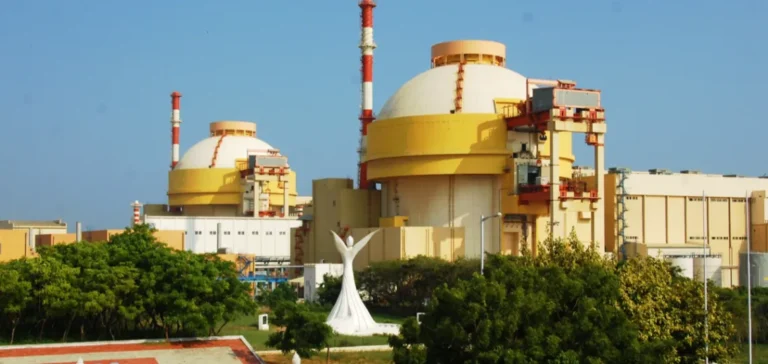India is preparing to establish a nuclear liability fund to cover compensation exceeding INR15bn ($169 million) owed by operators, according to two government sources familiar with the matter. The measure aims to make India’s legal framework more attractive to private investors and foreign technology suppliers in the nuclear industry.
A clearer compensation framework for suppliers
The planned fund, to be included in a new atomic energy bill, would supplement the operator’s capped liability, replacing the current system based on ad hoc state payouts. One source close to the initiative stated, “The fund aims to strengthen the government’s ability to compensate victims in the event of an accident.” None of the concerned entities, including the Department of Atomic Energy, the Prime Minister’s Office, or the Ministry of Finance, responded to requests for comment.
The initiative comes as India plans to increase its nuclear capacity twelvefold by 2047. To support this goal, the authorities intend to ease current regulations, notably by ending the state monopoly in the sector and revising the liability provisions that apply to suppliers.
Partial opening to private and foreign capital
Several major Indian conglomerates, including Tata Power, Adani Power and Reliance Industries, are already preparing investment plans in the nuclear domain. Prime Minister Narendra Modi’s government is finalising draft legislation expected to be tabled during the winter session of parliament in December. The bill would allow private companies to enter the fields of atomic energy generation and uranium mining, with foreign investors permitted to take minority stakes.
An insurance scheme that failed to reassure foreign players
Currently, India relies on a dedicated nuclear insurance pool established in 2015 but not embedded in law. While intended to support both operator and supplier liability under the 2010 legislation, the scheme has not succeeded in overcoming the reluctance of foreign firms from countries such as France and the United States.
Once adopted, the new law would replace the Atomic Energy Act of 1962 and the Civil Liability for Nuclear Damage Act of 2010. It would offer a clear legal mechanism for handling compensation, potentially reducing the perceived risk among international stakeholders.






















